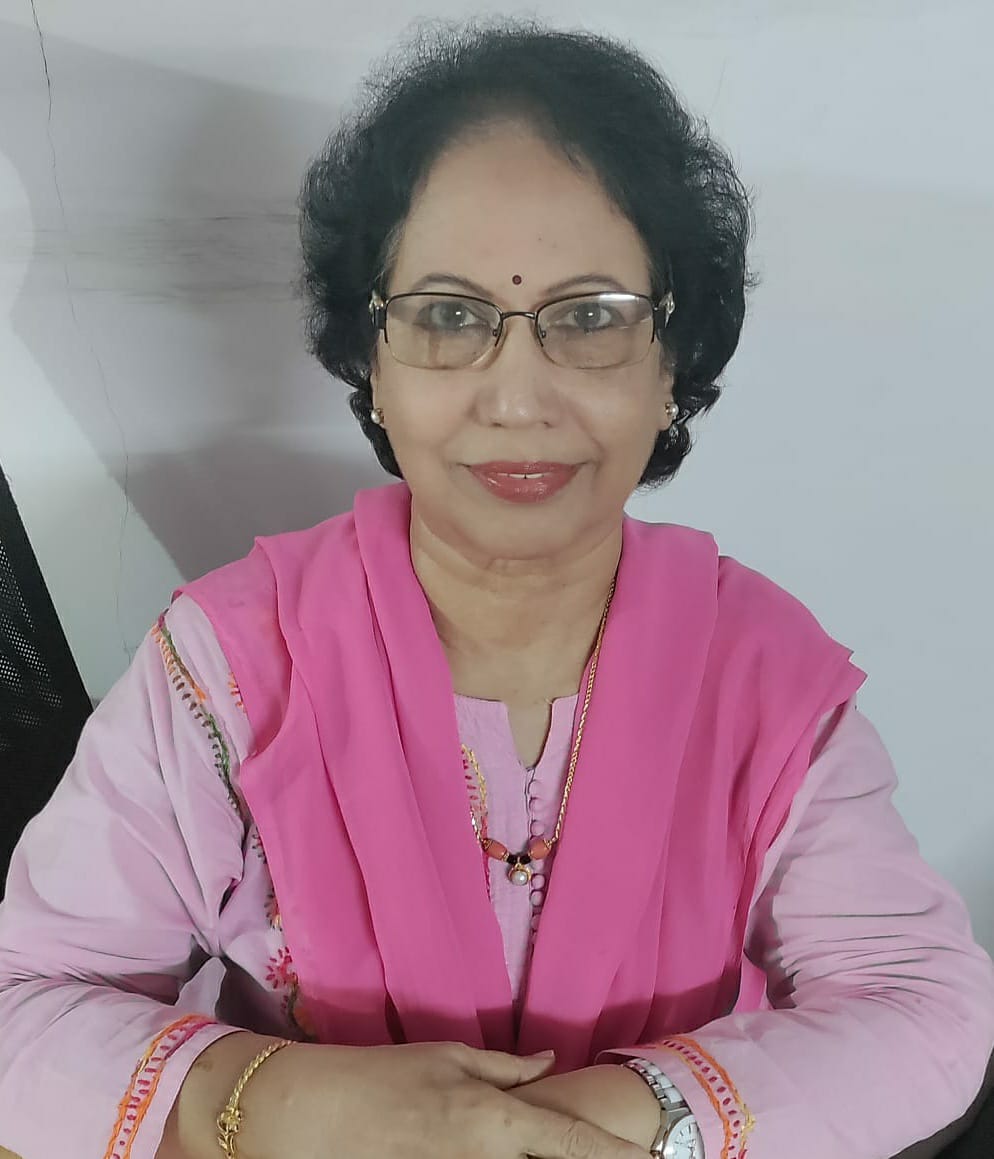 Dr. Usha P. Dave, Ph.D
Dr. Usha P. Dave, Ph.D
Knowledge, Attitude and Practice of Genetic Counseling in India:
The credit goes to Prof. Sheldon Reed who first coined the term “genetic counseling” in USA in 1947 & later he elaborated his views in his book- Counseling in Medical Genetics- in 1956. However, the era of ‘Genetic Counseling’ as a separate profession was begun almost four decades later when a book on “Practical Genetic Counseling” was written by Peter Harper in 1981 and soon spread across the globe. The definition of genetic counseling (GC) has not much changed since then and is defined as “a communication process which deals with the special health service that provides information & support to the people who have, or may be at risk of genetic disorders in a family”.
Since 1970, the special genetic training in clinical, laboratory and counseling aspects of genetic counseling to medical and non-medical graduates and postgraduates emerged, creating the ‘Genetic Counselor’ as a separate profession. The certified genetic counseling diplomas and degrees are designed to train the counselors in medical genetics, diagnostics and clinical aspects of genetic conditions, documentation of family and pedigree information, recognition of inheritance patterns and risk estimation, communication and empathy towards affected family, information on available options & further measures, and finally the support in decision-making/ decisions made. Several countries started appointing trained genetic counselors in hospitals and clinics realizing the acute need of genetic counselors.
The primary goal of genetic counseling is to accurately diagnose the genetic condition by advising the patients appropriate genetic investigations based on the available genetic technology and approved methods. Secondly, to prevent the happening of a genetic disorder/ birth defect again in that family by explaining the ways & means of preventing the specific genetic disorder by pretest and post-test genetic counseling during prenatal diagnosis. It is thus very important that a genetic counselor must have the updated genetic knowledge and experience to accurately and reliably implement it for the patient’s benefits.
India has witnessed the entry of genetic counselor as a separate entity only in this decade. The few isolated genetic counseling programs in Govt/ Pvt. health institutes and formation of Board of Genetic Counseling-India across the nation are not suffice to take care of the overall genetic burden of India. Nevertheless, the last few decades have witnessed transitional period of public health efforts shifting from infectious to rare & common genetic disorders through rare disease policy, treatment funds for management of affected patients, prevention of birth defects in children programs etc.
Advances in genetic science and biotechnology discovered several newer genes that increases the risk of certain common diseases. Various genetic tools such as cytogenetic microarray & next generation sequencing (NGS) have now become available to genetic counseling practioners in India, but still not very commonly known to the public. We still do not have our genetic epidemiological data and the few available are either hospital-based or incidences of common genetic disorders like congenital birth defects, common chromosomal aneuploidies, muscular dystrophies, Sickle cell or Thalassemia etc. reported by health programs in certain pockets of population.
Presently, the practice of genetic counseling in India is mostly confined to pediatric (birth defects, developmental disabilities, autism etc.) and reproductive areas (pregnancy losses, bad obstetric history etc.), simply because of the essential precise genetic diagnosis of the affected family member or carrier status of parents & prevention of the recurrence of the same defect. Abroad, several specialized GC branches for cancer, infertility, assisted reproduction technology (ART), neurology, nephrology, etc. have emerged due to special expertise required to counsel such affected patients. No doubt, it would slowly percolate in Indian practice scenario as well, once the genetic counseling profession is well established in medical community.
The entry of many national/international genomic companies in India allowed the ease of recommending unnecessary or inappropriate genomic tests to patients based on the inadequate genetic knowledge. We are unfortunately passing through this dangerous phase as there is no control over prescribing genomic tests. In the absence of health insurance, almost 90% of our patients’ expenses are out of their own pocket. Nevertheless, compared to few years back, the cost of genomic tests have substantially reduced due to the competitiveness among the genomic & biotechnology companies.
The judicial use of only relevant genetic tests requires special genetic expertise who decides the tests after thorough clinical & familial genetic evaluation and inheritance, if any. The experienced medical geneticist / genetic counselor plays a pivotal role here in explaining the nature of genetic disorder, relevant step-wise diagnostic tests, available treatment / management and scope of prevention. The current interpretation of NGS reporting, managing incidental findings to patients is still a complex phenomenon and not yet fully understood and universalized with consensus. We do follow guidelines of American of College of Medical Genetics but it may not always hold true for our genetically varied and ethnically different population. This complex genomic understanding is not expected by the referring clinicians who must in coordination with a genetic counselor decide the necessary genetic investigations & further genetic counseling to answer all the queries of the patient.
Additionally, the genetic counseling takes care of the confidentiality, privacy, beneficence, justice, informed consent and ethical issues arising out of carrier screening, diagnostic and prenatal genomic testing. The communication skills of the counselor play a significant role here unlike the clinician, who probably cannot devote much time from their busy routines. The genetic counselors are trained for educating parents, genetic testing procedures, developed communication skills, how to provide socio-psychological support and consideration of ethical, social & legal issues associated with genetic counseling.
No doubt the changing digital world such as smart phones, artificial intelligence, automation and digital communication will certainly play a significant role in genetic counseling practice in India, especially to communicate with the rural and tribal population, the latter comprising of 635 tribal communities including 75 primitive tribal groups. The large Indian population of over 1.3 billion with varied religions, castes and over 4635 multi-ethnic subgroups has no doubt created a great need for both genetic services and research.
The genetic counselors, as a team member of patient care, can dominate this field by providing the genetic communication services with proper genetic counseling at the door steps of the unreachable community. It is obvious that the genetic counseling practice in India has a great scope & demand in the coming years. Working as a medical geneticist and counselor for more than three decades, the author remembers the efforts to convince initially a karyotype test in Down syndrome child- the most common chromosomal abnormality causing mental deficiency- to pediatricians and their reluctance about advising genetic tests. Although the scenario has now changed in recent past, but there is still much to be done and genetic counseling professionals can greatly contribute to awareness and education of genetic science not only among clinicians but also to public at large considering community genetic approach.
Author:
Dr. Usha P. Dave, Ph.D., D.H.A.
Dr. Dave is Ph.D from Department of Neuropathology, Grant Government Medical College & Sir J. J. Group of Hospitals Mumbai, India.
She is Research Director – MILS International India & Laboratory Director – Navigene Genetic Science Lab., India.
August 13, 2023
References:
1. Biesecker BB (2001): Goals of genetic counseling. Clin Genet, 60: 323–330.
2. Dave UP (2016): Genetic Counseling in Developmental Disability, International Journal of Human Genetics; 16(3): 89-97.
3. Dave UP (2022): Genetic counseling: Principles & Practice. In “Genetic Counseling-Clincal & Laboratory Approach”, Eds. U. Dave & D. Shetty, J.P. Brothers Medical Publishers (P) Ltd, Chapter 4, pg 42-54.
4. Dwarte T, Barlow-Stewart K, O’Shea R et al (2019): Role and practice evolution for genetic counseling in the genomic era: The experience of Australian and UK genetics practitioners, J Genet Counseling; 28(2):378-387.
5. Gordon ES, Babu D, Laney DA (2018): The future is now: Technology’s impact on the practice of genetic counseling, Am J Med Genet C Semin Med Genet; 178(1): 15-23.
6. Harper PS (2010): Pratical Genetic Counseling, London: Butterworth and Co.
7. Hsia YE (1977): Approaches to the appraisal of genetic counselling, In: Lubs HA, de la Cruz F (Eds), Genetic Counseling, New York, Raven Press; 53–82.
8. ICMR (Indian Council of Medical Research) (2006): Ethical guidelines for biomedical research on human participants, New Delhi.
9. Reed SC (1975): A short history of genetic counseling. Social Biology, 21:332-339.
10. Yang M, Kim JW (2018): Principles of Genetic Counseling in the Era of Next-Generation Sequencing, Ann Lab Med; 38(4): 291-295.






